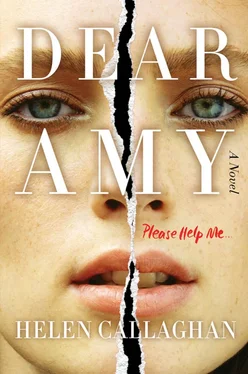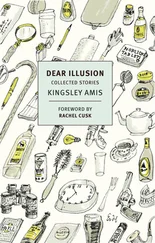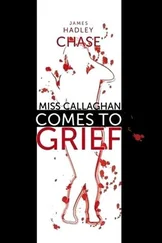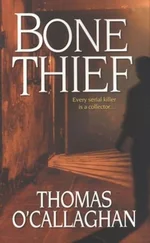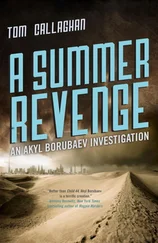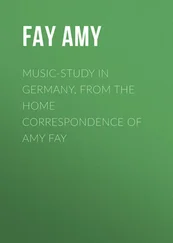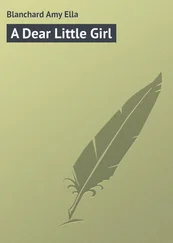I felt a hot blush stealing into my cheeks and up my throat. ‘Ah. Ah . No, I didn’t. Possibly because I’m expecting to be Miss Bellamy again before too long.’
It was suddenly his turn to look embarrassed and flush redly. ‘I see. Of course. Sorry.’ He pushed the door open, and something on the other side seemed to be offering resistance of sorts. ‘Come in.’
His office was light and airy after the darkness of the staircase, his window overlooking the roofs and gables of Old School Lane. Crows occasionally fluttered up out of the trees, like raised dust devils. The room itself smelled of furniture polish and leather. The resistance to opening the door had been provided by a huge tower of tottering books, piled on the floor against an overflowing bookcase that had no further room for them. Most of them looked brand new, as though they had never been opened, and many of them sported the legend ‘Ed. by Martin Forrester’. As I settled into the chair he offered me, I saw that they were all on roughly the same subject: Serial Sexual Abuse in Care ; New Perspectives on Caring for the Disadvantaged Youth ; Raised by Wolves – the State as Fosterer . On the walls were posters for conferences, a couple of blownup photocopies of XKCD cartoons, and a big print of the Horsehead Nebula. Postcards from all over the world peppered a noticeboard next to the tall, groaningly full bookcase.
I saw no photographs of women or children on his desk, then told myself off for looking for them. Bad, nosy girl.
He settled into the chair opposite me and sighed. ‘Any tea? Coffee?’
I shook my head. ‘No thank you.’ I let my handbag, with the letters inside, rest on the red rug beneath me. ‘So, what’s the next move? I give you the letters, I guess.’
‘Yes. The guy we’re planning on showing the letters to is called Mo Khan,’ he said. ‘He’s based in London. He’s agreed to see the letters tomorrow at ten.’
I nodded.
‘You have the letters with you, right?’ asked Forrester.
‘Oh yes,’ I said.
I reached into my bag and handed the buff-coloured envelope containing Bethan’s letters over to him. He opened it and gently shook them out. I noticed he was careful not to touch them. In the muted sunlight slanting into his office they looked creased and pathetic.
‘Interesting,’ he remarked, more to himself than anybody else, and peered down at them, almost close enough to smell them. ‘Very interesting.’ Then he said, ‘These weren’t written in any cellar. These were written and posted recently.’
‘Yes. It’s very strange. It’s well over fifteen years later, why the present tense? She’d be in her thirties by now.’
‘Well, that presupposes she wrote them. I have to tell you, Mrs… Miss Bellamy.’
‘You know what? Call me Margot. Titles are a moral minefield right now.’
‘Margot,’ he said, raising an eyebrow, and there was a glitter of something beneath it that took me aback for a second, raised butterflies in my stomach. ‘Call me Martin. I suppose what I’m saying is that there are many more reasons to assume it’s the work of our killer rather than any of the victims.’ His lips twisted into something rueful, something compassionate. ‘I think you need to brace yourself for that possibility.’
I didn’t reply. The thought was repugnant – but I saw his point.
He perused the letters for a few moments longer and scratched his stubbled chin with a thoughtful unselfconsciousness. ‘Still, all of these new details… Hmm. I suppose it would be pointless to ask if you had any idea who’d written them?’
‘I’ve no idea,’ I said, shaking my head. ‘Absolutely none.’
‘There is something you could do for us on that front, actually,’ said Martin, as though deep in thought.
‘Which is?’
‘I imagine,’ he said, ‘based on your column, that you have relationships with mental health professionals who provide you with feedback and advice.’
‘I do,’ I said warily.
‘You could take a copy of the letter around to the local psychiatric hospitals. See if any of the staff know anything about it.’
I rubbed my tired eyes, careful not to smudge my mascara. ‘I suppose it’s worth a go,’ I said, ‘but I don’t know how successful that’ll be. There is such a thing in the world as medical confidentiality.’
‘Hmm,’ said Martin, absorbing this, his piercing gaze falling upon me once more.
‘Though,’ I said, thinking, ‘what I could do, now you mention it, and probably should have done already, is go back through the files I keep of all the letters I get on the column, and see if the handwriting in any of them resembles these. I think that’ll be a dead end, too, but it would be stupid not to try. I mean, I think we can assume she’s a local woman, if it is a woman. The Examiner isn’t exactly the most obvious place to send a letter like this – if it has a circulation of more than twenty thousand I’d be amazed,’ I said.
‘Yes,’ murmured Martin. He seemed lost in thought, looking at the letters again. ‘I wonder what Mo will say,’ he muttered. ‘Lovely forgeries…’
‘Are you so sure they’re forgeries?’ I asked, then instantly regretted it. Of course they were probably forgeries. I was letting my imagination run away with me for the thousandth time – the notion of the captured girl, now a woman, trapped and trying to write her way out of her fate possessed me, made my heart thud dangerously in dread.
But now I’d asked the question, I had no real desire to retract it.
He raised a heavy eyebrow in surprise. ‘Well, I suppose I can understand that you want to believe…’
I cut him short. ‘I understood that the assumption of death was never much more than that. An assumption.’
I think I was giving him a fairly wild stare at this point.
‘Yeah, it’s an assumption.’ He waved a hand in dismissal. ‘And it’s true that there’s a lot we can’t assume – because we simply don’t know what happened to her. But the overwhelming preponderance of evidence suggests that she was held against her will somewhere, probably by whoever murdered Peggy, and that she received a serious injury, possibly while trying to escape. It all suggests that whoever attacked her finished the job and buried her somewhere. And then moved on to the next girl.’
‘But you can’t be absolutely sure,’ I said. ‘What if she is still being held somewhere? We know she was injured, agreed, but what if she was recaptured… What if whoever it was treated her for her wounds? There are tons of cases where kidnapped women and girls have been held for decades, in some instances. Maybe that’s what’s happening here…’
‘Then how is she sending these letters? Is her kidnapper providing her with stamps? And here’s the big question – why doesn’t she just write to the police? Mrs Lew- Margot, listen to me. I don’t know if these letters are forged or not, or whether Bethan Avery is alive or dead. That’s why we’re showing them to Mo. These letters interest me because they’re strange and very similar to Bethan’s journals, and I’ve never seen or heard of anything like them before. If this is a scam, it’s a very elaborate one.’ He held out his hands in appeal, inviting me to see reason. ‘But it doesn’t prove she’s alive. Far from it. So far, it only proves that someone wants us to think she is.’
I sighed.
‘Or rather, for you to think she is.’ I was pinned down again by that green stare. ‘These letters could have been sent to any paper, local or national, and got a response. And yet somehow they’ve ended up with you.’
I thought about this for a long moment and shrugged. ‘I have absolutely no idea why.’
Читать дальше
